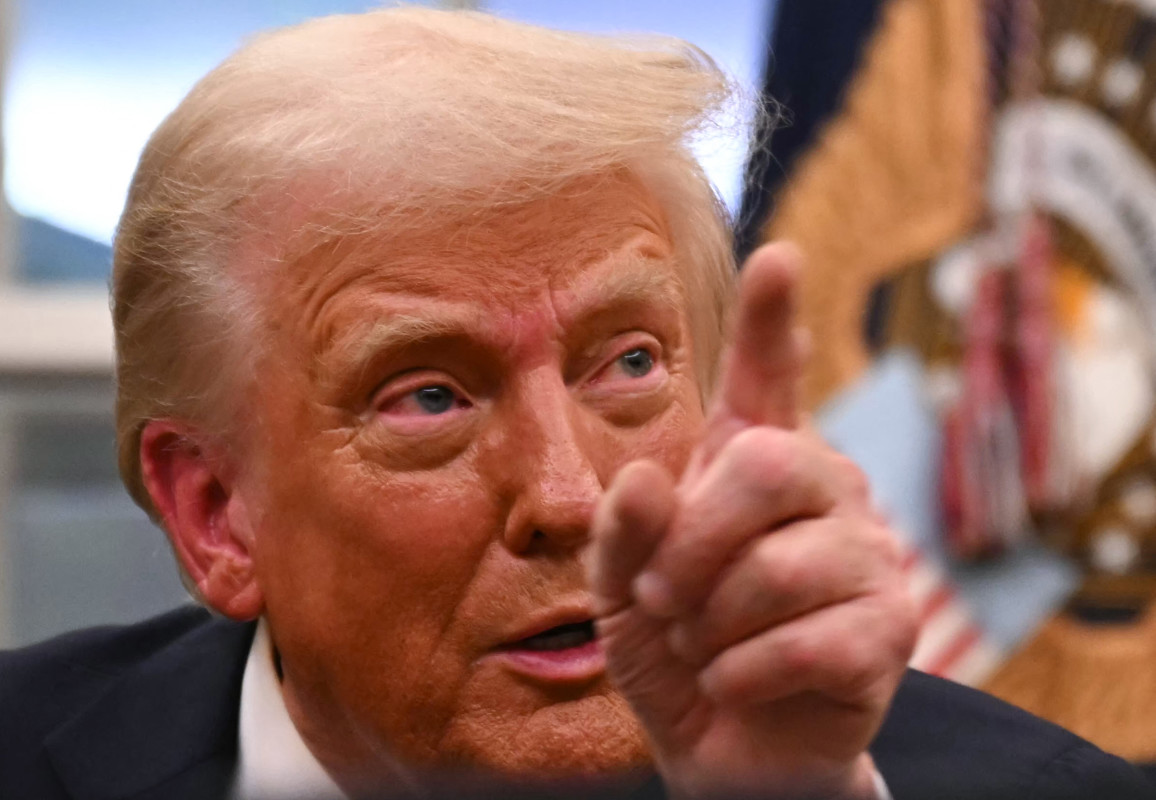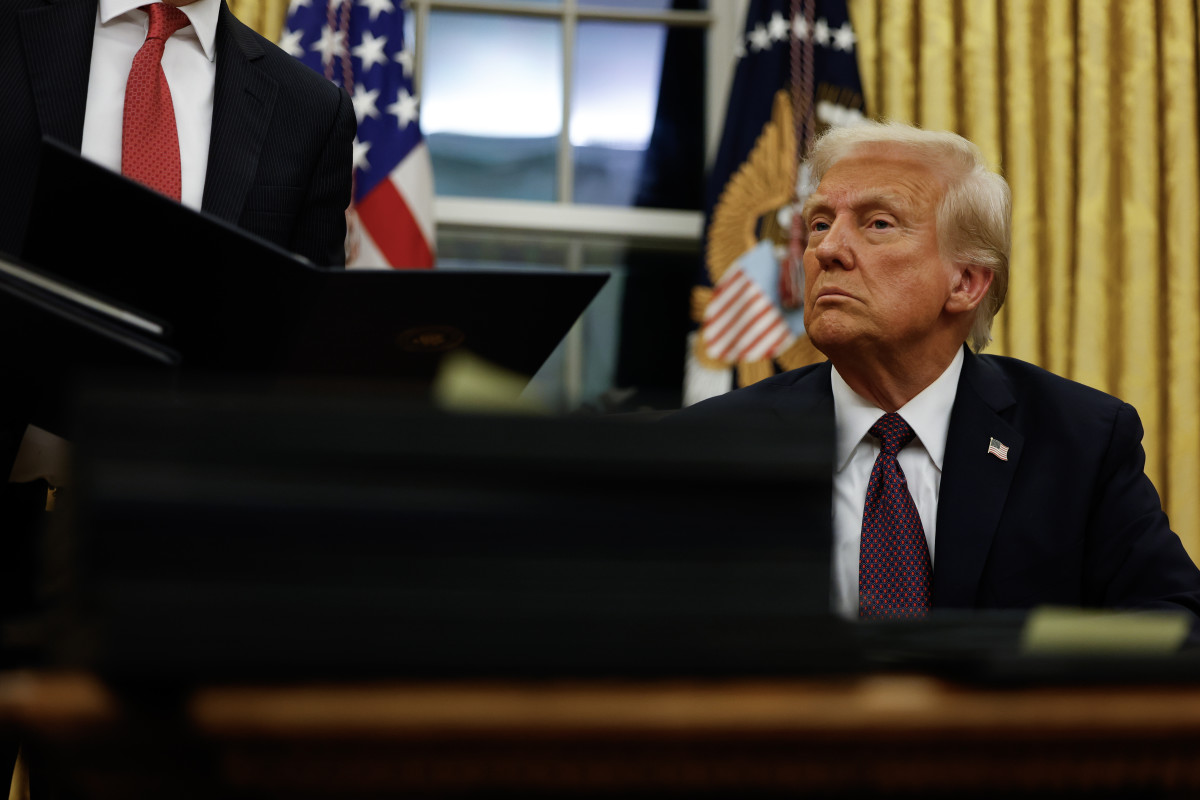
The U.S. economy faces inflation and growth risks tied to President Donald Trump's decision to impose tariffs on the nation's biggest trading partners, while stocks could pull back sharply as earnings forecasts are pressured, Goldman Sachs analysts indicated Monday.
Trump, citing security issues tied to U.S. borders between both Canada and Mexico, invoked the International Emergency Economic Powers Act and plans to impose a sweeping 25% levy on imported goods, set to begin Feb. 4.
A 10% tariff is set for goods imported from China, which accounts for around 14% of all U.S. trade, with Trump signaling that duties on goods from Europe would "definitely happen" over the near term.
The President widely telegraphed the moves during his election campaign and his first two weeks in office, but they have nonetheless caught global markets off guard, triggering a surge in the safe-haven U.S. dollar, a spike in global energy prices, and a sharp pullback in stocks from major markets worldwide.
“These announcements have come as a shock to many investors who expected tariffs would only be imposed if trade negotiations failed,” said Goldman strategist David Kostin. “Our economists describe the outlook as unclear but believe there is a substantial probability that the tariffs on Canada and Mexico will be temporary."

In a separate note, Goldman economists estimated that a "long-term 25% tariff on imports from Canada and Mexico would raise core PCE prices by 0.7% and hit GDP by 0.4%," adding they expect to update those estimates as more details emerge.
Trump tariffs set to begin Tuesday
Trump, who had previously said the duties would apply from Feb. 1, has placed a Feb. 4 deadline instead and said he planned to speak with Canadian Prime Minister Justin Trudeau and Mexican President Claudia Sheinbaum later today.
“I don’t expect anything very dramatic,” Trump told reporters in Washington when asked about his planned discussions. “We put tariffs on. They owe us a lot of money, and I’m sure they’re going to pay.”
GS: S&P 500 companies with explicit reported revenue exposure to Greater China of 25% or more pic.twitter.com/89ACLAQyTD
— Mike Zaccardi, CFA, CMT 🍖 (@MikeZaccardi) February 3, 2025
Kostin and his team noted that U.S companies with broad exposure to the tariffs, which at present comprise just over 40% of all imports, face the difficult choice between taking on the extra costs or passing them on to customers.
"If company managements decide to absorb the higher input costs, then profit margins would be squeezed," Goldman said. "If companies pass along the higher costs to its end customers, then sales volumes may suffer."
Related: Stock Market Today: Stocks tumble as Trump tariffs spark trade war fears
Squeezing profit margins could have a notable impact on earnings forecasts for the S&P 500, which currently are expected to rise 10.6% in the first quarter to a collective $521.5 billion, according to LSEG data.
For the full year, profit growth is expected to rise 13.3%, around 3 percentage points higher than last year's 10.5% gain.
Kostin and the Goldman team estimate, however, that for every five-percentage-point increase in U.S. tariffs, S&P 500 earnings could be trimmed by between 1% and 2%.
Should the current tariff structure remain in place over the coming months, Kostin and his team see the potential of a 5% pullback for the S&P 500 from its current level.
Market reaction could get worse
For the moment at least, stock futures are moving sharply lower but haven't indicated the kind of declines Goldman and others have forecast as a result of the tariff announcements and prospects of a global trade war.
The market's go-to volatility gauge, however, is starting to flash a warning. CBOE Group's VIX index was last marked 24.7% higher at $19.70, a level that suggests traders are expecting daily swings for the S&P 500 of around 1.24%, or 75 points, over the next 30 days.
Related: Inflation report upends Fed interest rate cut bets in 2025
"Investors still seem to believe that there’s a good chance that Trump will use some minor concessions (about what?) to declare victory and dial the tariffs back," the Nobel-Prize-winning economist Paul Krugman said on a Substack post. "But a muted market reaction makes it likely that Trump will continue and expand his trade war."
More Economic Analysis:
- Major fund manager reveals stock market forecast for 2025
- Surprising December retail sales report upends inflation bets
- Jobs report has big implications for Fed rate bets, Treasury yields
"And even if some of the tariffs prove temporary, the Rubicon has been crossed," he added. "We now know that when the United States signs an agreement, on trade or anything else, the president will treat that agreement as a mere suggestion to be ignored whenever he feels like it."
That view was echoed in a JP Morgan note published Monday, where economists said that Trump's weekend tariff moves "challenge our underlying view that the Trump administration will strive to limit disruptive policies."
“In short, the risk is that the policy mix is tilting (perhaps unintentionally) into a business-unfriendly stance,” the bank added.
Related: Veteran fund manager issues dire S&P 500 warning for 2025







